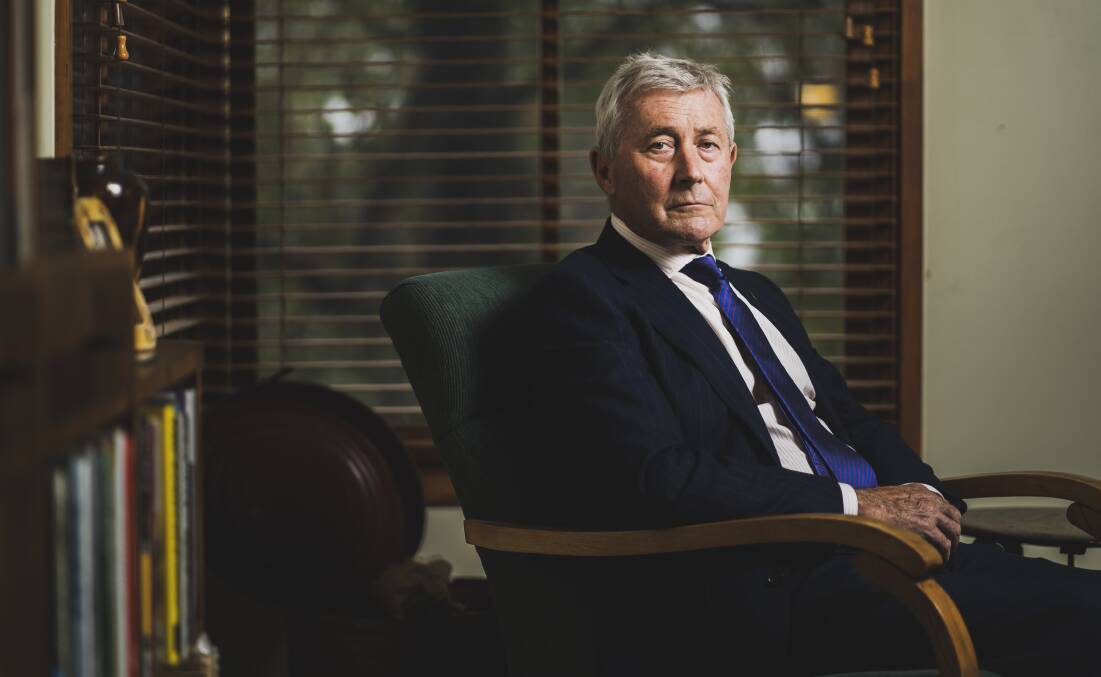
A heavily redacted document, relating to the now discontinued case against Canberra lawyer and whistleblower Bernard Collaery, has finally been made public after more than two years.
The ACT Court of Appeal judgment reveals it is likely a judge "gave too much weight" to national security and "too little weight" to the administration of justice when determining if certain matters would be heard in open court.
Mr Collaery and his client, the ex-Australian Secret Intelligence Service spy known as Witness K, were charged over allegedly leaking classified information about an alleged Australian spying operation in Timor-Leste.
Charges against Mr Collaery were discontinued by the federal government in 2022, following protracted legal proceedings.
Mr Collaery had been set to stand trial in October 2022, charged with four counts of unlawfully communicating classified information in media interviews and a single conspiracy charge.
The charges related to Mr Collaery revealing Australian spies had bugged a government building in the nation during negotiations to carve up lucrative oil and gas reserves in the Timor Sea.
Much of the now vacated trial was set to be held behind closed doors, after Justice David Mossop made a ruling under national security legislation to ban public disclosure of certain information.
This order had been sought by then-federal attorney-general Christian Porter, with the effect being that significant parts of Mr Collaery's trial would be held in closed court.
Mr Collaery subsequently challenged the ruling in the ACT Court of Appeal, which unanimously allowed his appeal in October 2021.
While Mr Collaery and his team agreed some sensitive information should not be made public, they had argued material relating to "the truth of six specific matters" should be dealt with in open court.
However, the published reasons behind this decision were not made public until Tuesday, due to a bid to take the matter to the High Court and the retirement of two of the appeal judges on the case.
In the published judgment, former Chief Justice Helen Murrell, Justice John Burns and Justice Michael Wigney found it was likely Justice Mossop "gave too much weight to the risk of prejudice to national security and too little weight to the interests of the administration of justice in the circumstances of this case."
They also found that evidence led by the attorney-general was "replete with speculation and devoid of any specific basis for concluding that significant risks to national security would materialise" if the matters were heard in open court.
"The open court principle stands as a bulwark against the possibility of political prosecutions by allowing public scrutiny and assessment."







